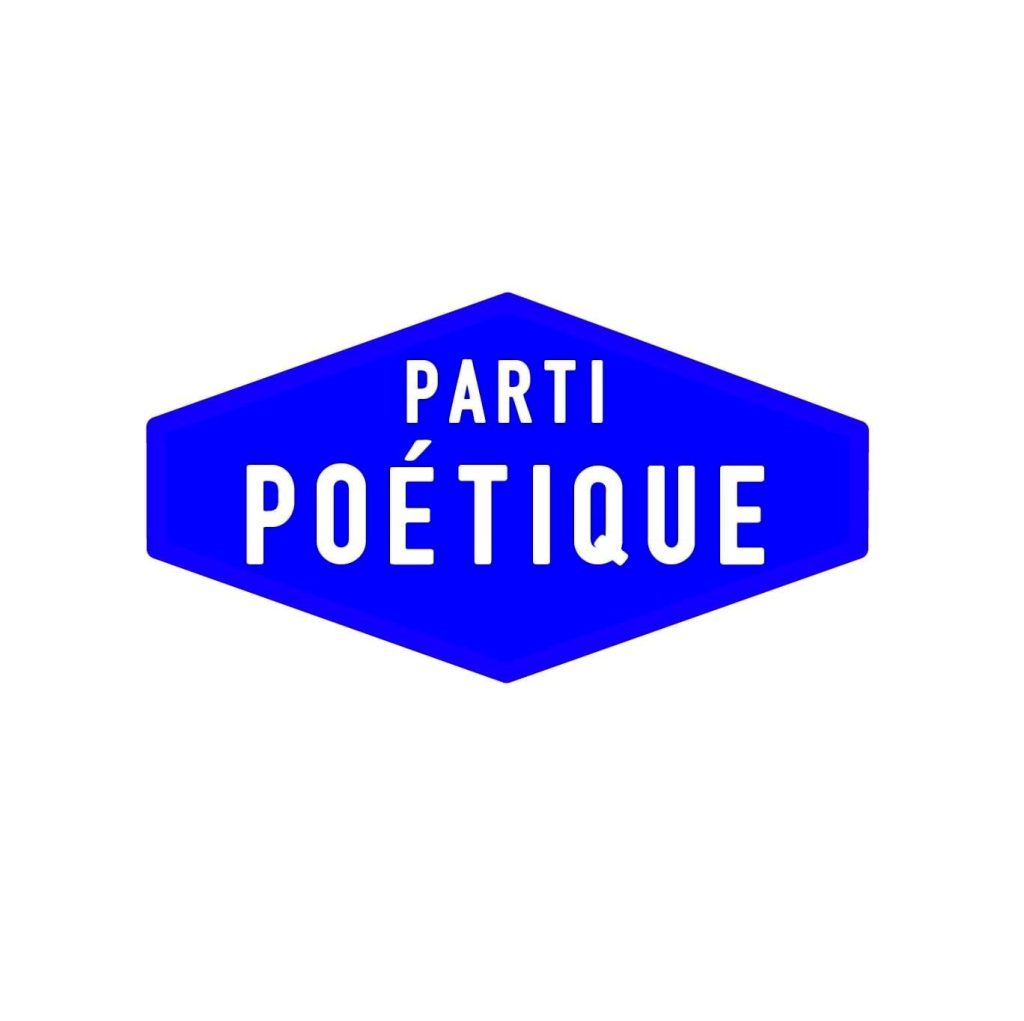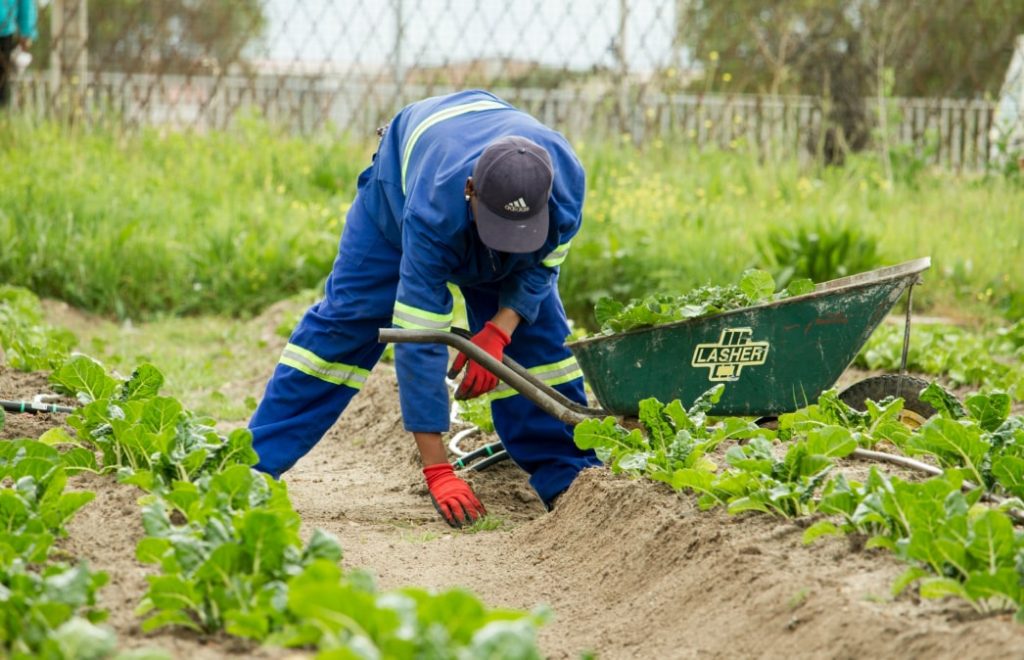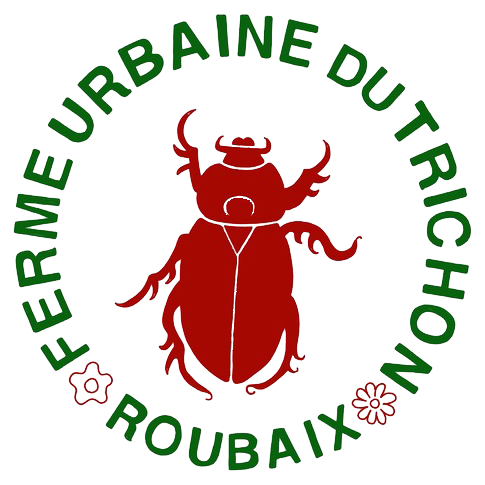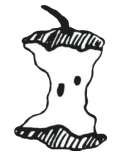
Quick facts
Located in Saint- Denis, France Opened in 2018
SDG’ s Goals 11 , 15 , 17
France.
Zone Sensible is a project of the artistic collective Parti Poétique in Saint- Denis,Since its creation in 2003 , the collective has been developing different projects in France and abroad that link art and the environment. The transdisciplinary research project is themed " Pollination of the city". With the bees as a focal point, the installations in the public space question the relationship of the urban environment, its tensions, its densities and its social organization.
How does the organization address societal challenges in an innovative way?
The project was designed as an open- air creative laboratory which combines the production of more than 200 plant species cultivated in permaculture with multidisciplinary programming around the themes of nature, culture and food. As a true Farm of global cultures, the project promotes the cultural biodiversity and culinary know- how of the 135 nationalities present in Saint- Denis. The Zone Sensible is a unique cultural facility in the territory of Seine- Saint- Denis, offering multidisciplinary events throughout the year ( exhibitions, concerts, debates, open- air cinema and theatre, etc.), residencies ( for chefs, artists, researchers), guided tours and practical workshops.
By choosing the permaculture principles, the project has made a long- term commitment to respecting ecosystems that value biodiversity and to low carbon emission practices. Zone Sensible works by respecting the seasonality of production, but also by committing to Zero pesticides. The project has also set up a recycling loop for organic waste, in partnership with the restaurants in order to recover vegetable peelings. They also partnered with a local brewery to recover the brewing grain and partnered with equestrian theatres or circuses in the area to reuse the shredded wood.What societal benefit does the organization create?
Zone Sensible is also thought of as a place for learning and sharing knowledge, with the organization of educational workshops to raise awareness of art, the living, the preservation of the environment and healthy and sustainable food. Spaces are also set up for the dissemination of all artistic formats: performance stage, outdoor cinema screen, and mediation space while paying particular attention to developing atypical events.
What new urban trades are created in the project?
Farmer- animator, Agricultural artist / Beekeeper artistic mediator.

Quick facts
Based in Graz, Austria
Network of 50, 000 Change Makers
Goal: create more sustainable cities. Host of Europe’ s largest event for
Urban Sustainability SDG’ s Goal 11 , 13 , 15
makers by organizing urban sustainability events. The global community of Urban
Future has more than 50, 000 City Changers and 200+ organizations.
Urban Future consists of three parts: the community, virtual events, and live events. All of them are targeted towards collectively making cities more sustainable.
How does the organization address societal challenges in an innovative way?

Next to their virtual and in- person events, Urban Future also has an online content and community platform that provides actionable knowledge on how to make cities more sustainable. Through the website City Changers. org practitioners and interested citizens can f ind the answers to “ how to” drive the change through best practice examples and advice from experts.
What societal benefit does the organization create?
Through their events as well as their knowledge exchange platform, urban Future connects people who are passionate about improving the live in their cities. This way they act as a catalyst for urban change which will ultimately create a better life for all city’ s inhabitants.
What new urban trades are created in the project?
This organization gives people the platform to collectively work on improving urban areas. By doing so new urban trades can be created during the process. However, Urban Future is not actively responsible for creating new urban trades.
What makes the organization particularly interesting as an example? Urban Future was founded as an initiative of passionate citizens who cared to improve their neighborhood. Thus, it has been in the organizations DNA to unite people for action. By showing how to act now Urban Future is contributing to driving the transition process towards sustainable cities forwa

Quick facts
Located in Turin, Italy
Founded by the non- profit organisation Coefficiente Clorofilla
SDGs impacted by the companies’ activities: 1 , 3 , 4 , 9 , 10, 11 , 12 , 13 , 15
Orti Generali within their project focuses on innovation, urban agriculture, social inclusion.
Orti Generali is a project founded by the non- profit organisation Coefficiente. Created from an abandoned park with a residual agricultural area, it now houses 150 urban vegetable gardens and an educational centre where theoretical and practical training courses, activities and workshops on topics related to organic farming, horticulture and rural work are offered. Located in a riverside park on the south side of the city of Turin, it is open to citizens and visitors and offers the possibility to cultivate, in groups, as a family, as an association or individually.
How does the organization address societal challenges in an innovative way?
Orti Generali acts in an innvovative way according to its vision, mission and values. Shaping a new model of social enterprise, based on a horizontal, inclusive and participatory processes and organic farming methods, serving the collective by means of the integrated contribution of social and natural sciences in their vision.
The Association Coefficiente Clorofilla has experimented the urban regeneration model set up by Miraorti to requalify one of the largest city area characterised by illegal uses: the illegal vegetable gardens in Mirafiori Sud. In the framework of the Orti Generali project, Coefficiente Clorofilla has opened a park of a hundred and f ifty urban gardens, thus maintaining the agricultural vocation of the area, and has over time engaged gardeners, schools, associations, as well as a network of local volunteers to create an educational center, and a collective vegetable garden.
The project mission is therefore to put a new model of intervention from below into practice, that encompasses a circular, sustainable and inclusive approach and shares botanics- and ecology related expertise with the citizenship.
Keywords that at best sum up the values promoted by Orti Generali are: social and environmental sustainability, organic farming, technological innovation to avoid waste of resources, democracy and participation, social inclusion.
What makes the organization particularly interesting as an example?
By its nature, the project is inspirational for people, who are addressed in courses and trainings provided by experts of forest and environmental sciences. The integration of practical, participative activities with the collective efforts for soil and biodiversity restoration, promotes at the same time a balance between inhabitants and the environment and individual self- care, triggering a sense of responsibility towards a local space and network, where the meaning and impact of actions are directly experienced.
What societal benefit does the organization create?
A major part of Orti Generali social related initiatives falls under the scope of the following SDGs: SDG 1 - Overcoming poverty and SDG 3 - Health and well- being.
Orti Generali gardens are part of a former agricultural area occupied at the early stages of the construction of a low- income housing neighborhood. Therefore, the main vocation of the project was to transform an area characterized by social and economic fragilities, and to ensure that within the new model of social enterprise, the local citizens would play an active role.
In addition, Orti Generali host work grants and training placements, particularly for disadvantaged people. In cooperation with the ASL, local health units, and associations, they carry out rehabilitation and horticultural therapy courses.
What new urban trades are created in the project?
From a natural capital prospective Orti Generali focuses on the following SDGs: SDG 13 - Fight against Climate Change SDG 15 - Life on Land
Orti Generali contributes to soil regeneration by reintroducing trees of old varieties in its area, with a special focus on plants that facilitate the repopulation of pollinating insects. In addition, to reduce water wastage, a centralized irrigation system for all the garden is activated depending on temperature, need and humidity.
Through the initiative " Orto Collettivo", Orti General supplies the chain of the ' Mirafiori Quartieri Solidali' circuit: by collecting and distributing fresh, zero- km vegetables through the ' Casa nel Parco - Casa del Quartiere' hub in southern Mirafiori, providing access to quality food for people in economic difficulty. In 2019 a ton of vegetables was produced for the neighborhood’ s social realities.

Lersøgrøftens Integrationsbyhaver is a garden community with 150 gardens located in Copenhagen, Denmark. It is aimed at strengthening local unity across the broad resident groups. In addition, the association focuses on disseminating knowledge about gardening and sustainable principles.
Quick facts
Founded in March 2012 Copenhagen, Denmark 150 gardens 12 m2 each
Works to strengthen the local community
SDG’ s Goals 2 , 3 , 11 and 12
How does the organization address societal challenges in an innovative way?
The project works to strengthen unity between people with different backgrounds. Therefore half of the gardens are reserved for people born outside of Denmark, while the other half is reserved for people born in Denmark. The project is building a strong sense of community by having clear membership rules such as taking care of the common areas during common garden days and actively looking out for each other and possibilities to help.
What societal benefit does the organization create?
By bringing residents from diverse backgrounds together, Lersøgrøftens Integrationsbyhaver is contributing greatly to the development of the community. Since Copenhagen is a metropolitan city with people from all over the world projects like this help to reduce the feeling of anonymity while simultaneously increasing the quality of life through additional green spaces and local organic food sources. At the same time, the association' s ambition is to actively participate in networking with the many other associations and organizations that work with green initiatives in Copenhagen and nationally

Quick facts
Founded in 2015
Is UK Based but operates in refugee camps in Iraq, Uganda and Jordan
SDG’ s Goals 2 , 3 ( promoting mental health and well- being) and 12
The Lemon Tree trust is a non- profit organization based in the United Kingdom that facilitates greening innovation and urban agriculture in refugee camps in Iraq, Uganda and Jordan. Their long- term goal is to bring gardening initiatives to every refugee camp and community of forced migrants in the world. Since 2015 , the Lemon Tree Trust has supported refugees and communities of forced migrants, to create home and community gardens, garden competitions and education projects.
How does the organization address societal challenges in an innovative way?

The Lemon Tree Trust has made it its mission to transform one refugee camp at a time by implementing gardening initiatives and increasing the number of communal green spaces. Gardening is a valuable therapeutic tool since it addresses mental health issues by bringing people closer together, it helps to enhance the quality of life by creating more green spaces, and it creates food security as well as economic possibilities.
What societal benefit does the organization create?
The Lemon Tree Trust works to improve well- being by creating a greener and more welcoming environment. Their activities are focused on four main impact areas:
What new urban trades are created in the project?
The garden initiatives create employment possibilities for refugees since they encourage self- sustaining ventures run for and by refugees, which then again help to restore cultural identity, dignity, and
purpose.
What makes the organization particularly interesting as an example?
The Lemon Tree Trust has a holistic approach to sustainability since it managed to combine all three aspects of sustainability. Through their work, they empower refugees which works towards social sustainability, increase environmental sustainability by regenerating ecosystems and increasing biodiversity as well as help create ventures which increase economic sustainability.

Quick facts
Created in 2015 as a project of the Baraka Cooperative
Located in Roubaix, France 8, 880 m² of land
SDG’ s Goals 2 , 3 , 11 and 12
France.
La ferme du Trichon is a circular urban farming project in the heart of Roubaix, It is a hub for sustainable action and social transformation. It is located in the city centre with the aim of efficient resource use and the reduction of environmental impacts while fostering the well- being of the residents. The farm consists of twelve large garden beds, a chicken coop, a greenhouse, rainwater harvesting facilities and a composting point. However, it is continuously expanding.
How does the organization address societal challenges in an innovative way?
When the project f irst started it was simply a shared garden and 40 residents of the district caring for it. Thanks to the ambition of reclaiming the city' s wastelands while responding to food challenges, the farm now brings people together to discuss and collectively seek solutions to current and future problems of food, housing or migration. They are aiming to re- localize community living to develop an economy of mutual helping.
What societal benefit does the organization create?
The farm seeks to connect different actors of society and to act as a local hub for everyone. They organize a local farmers market selling regional fruit and vegetables for a fair price on Wednesdays, a bike repair initiative on Saturdays and evening classes by the community college on Thursday evenings.
What new urban trades are created in the project?
Farmer- animator, Local ecological.
What makes the organization particularly interesting as an example?
The project is marking a new stage in the innovative process of reclaiming urban wastelands in the city of Roubaix. It was developed with the ambition to collectively work for bringing nutritious food to the community - in close collaboration with public actors, citizens, organizations and the private sector.

Quick facts
Located in Cork, Ireland
Involved in community- scale composting
Focused on: bio- diversity, circular conomy, education, urban agriculture
SDGs impacted by the companies’ activities: 9 , 11 , 12 , 13 , 14 , 15
Cork Urban Soil Project ( CUSP) is a non for profit organization with the aim to model new ways of addressing the city’ s waste stream and support food sovereignty. CUPS is currently running an experiment in circular waste system that compost urban food scraps and use the resulting soil for three planting initiatives and local food growing in the middle of the city of Cork.
How does the organization address societal challenges in an innovative way?
Cork Urban Soil Project is changing the way society sees waste, from a pollutant to a resource. During a working day in a farmer’ s market in Cork city they developed CUPS’ Vision: “ It’ s Compossible” which involves questions such us “ What if the words waste, rubbish and trash did not exist? Imagine a language without the idea of ‘ throwing away’. Can you look at a takeaway box or an apple core and see a resource?”. The Urban Soil Project replicates the patterns and relationships of nature, using modern technology and the spirit of the meitheal and attempts to model ways for Cork City and its communities to create a more sustainable, green, and respectful future.
CUPS works with a small composting machine ( a Joraform aerobic biodigester) and My Goodness, a strong ecologically minded community food company which produces weekly a large amount of food scraps from its meal production. Weekly, CUPS collects and brings all My Goodess’ s food waste ( and compostable packaging) to the biodigester, where during the process, it’ s then shredded and broken down by microbes. After 4 weeks, a soil substrate is produced. This substrate is cured for a certain amount of time and is then used in the CUSP microfarm, closing the nutrient cycle within the community from which it came from.
The impact of CUPS’ project is impressive. 10, 200 are the chilograms of food waste diverted, toghether with 8000kg of cardboard and 6000 litres of soil produced.
What societal benefit does the organization create?
Thanks to the project, CUPS offers training programs around composting and can employ a small team of people. In April 2022 , CUPS hosted a lecture about composting with Donal O’ Leary, composter at CUSP and owner of Waste Down environmental consultancy. During the informative lesson various myths and tricks about home composting have been shared.Different people participated, from complete beginners to more experienced. Everyone can give composting a go, it’ s a great way to reduce our food waste and play a part in creating a healthier ecosystem. This is what Donal O’ Leary believes and teach the participants.
What makes the organization particularly interesting as an example?
CUPS is definitely an interesting project for the way they rethink the fate of their waste. The process is not revolutionary but regenerative. The Urban Soil Project is attempting to replicate the patterns and relationships of nature, using modern technology and the spirit of the team, to help Cork City and its communities create a more sustainable, green, prolific, and respectful future.
This project is the f irst of its kind in Ireland and their idea to convert food waste in Cork City to high- quality
compost/ bioenergy to then grow nutritious food, support tree planting, reduce f looding impacts and erosion, improve water quality, and to remediate polluted soils is a great example that could, ideally, implemented in each city in Ireland.
What new urban trades are created in the project?
Community educators, production manager, administration, urban farmers/ farm hands, installations manager, horticulture specialists, canvassers for markets and events.